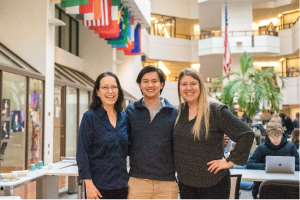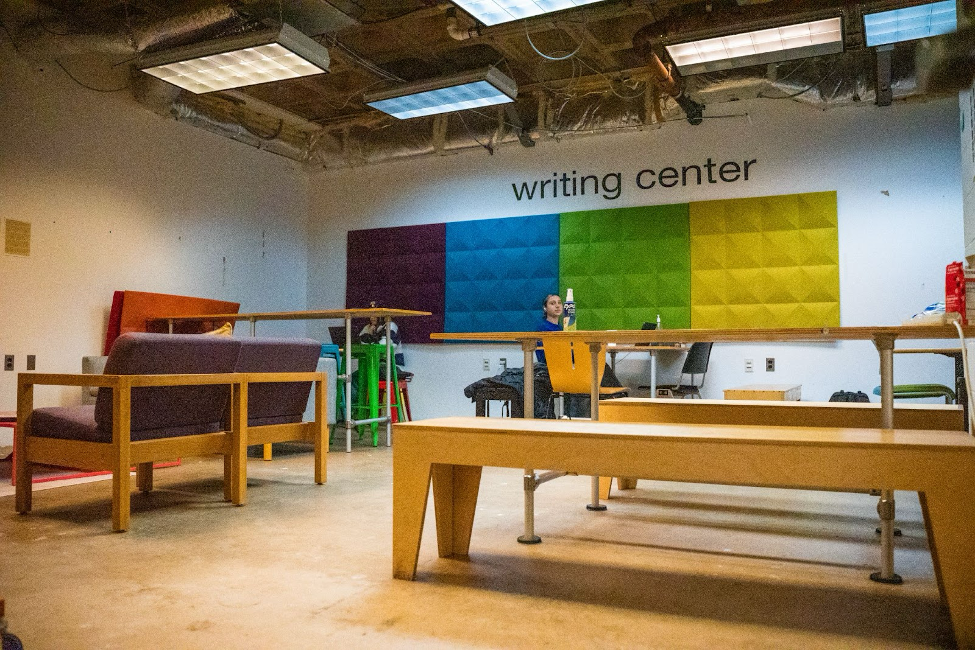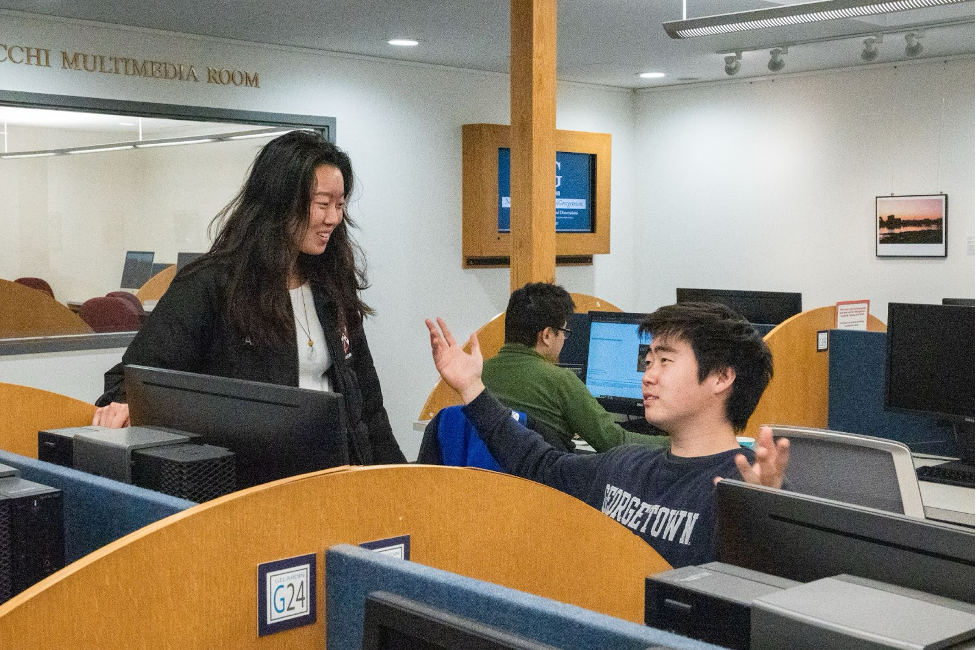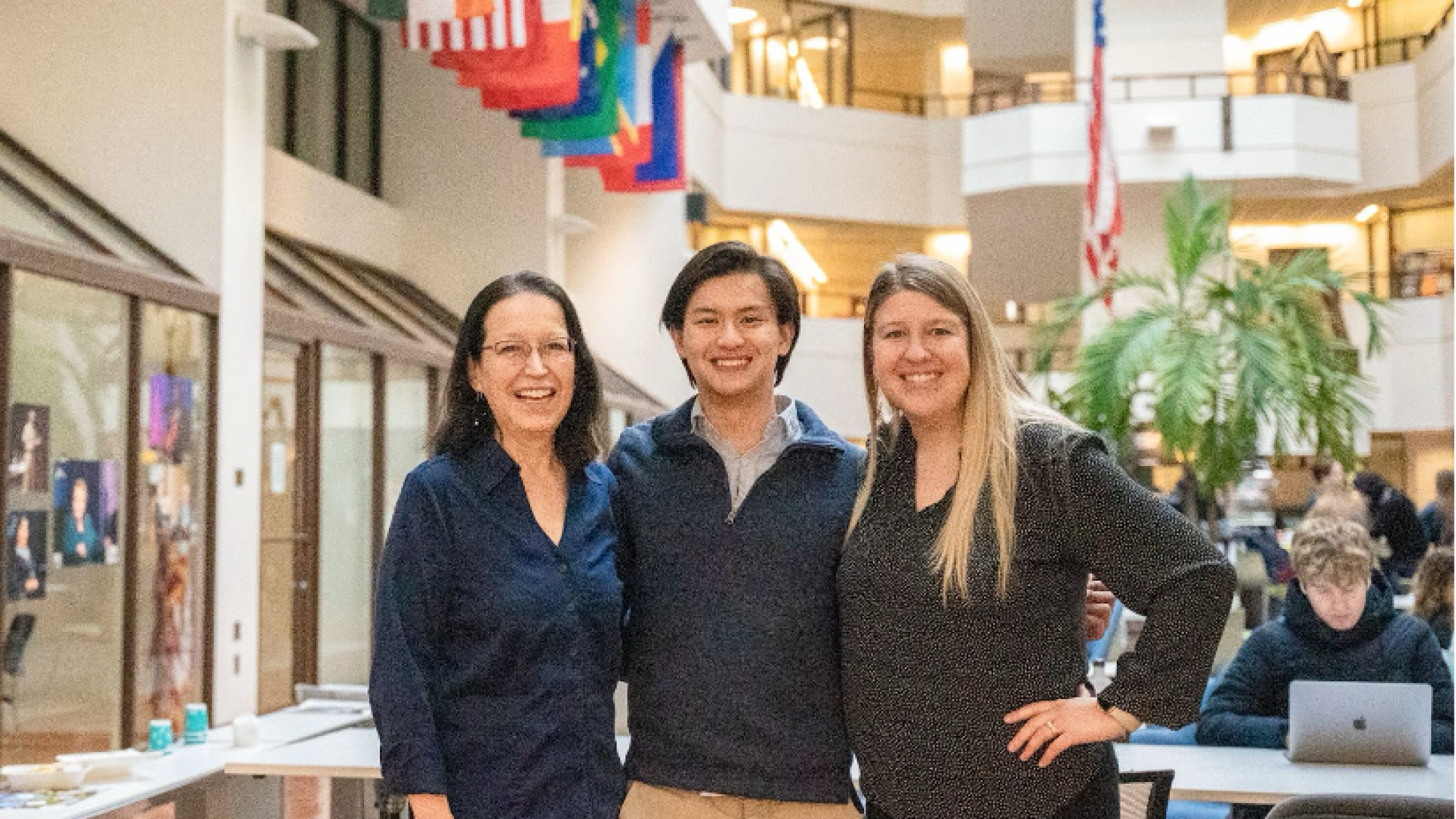Georgetown offers many academic resources to support students, but when I first arrived at Georgetown, like many, I was clueless about the resources available. Talking to my upperclassmen friends, I began to piece together different opportunities that I could utilize. Taking that initial step to tap into Georgetown’s resources below completely reshaped my academic journey.
Surprisingly, many of Georgetown’s academic resources remain underutilized. Simply by scheduling a meeting and showing up, you will stand out as a student. Everyone at Georgetown is committed to supporting your academic development, and these resources are readily available. They’ve significantly benefited me, and I’m confident that if you give them a chance, they will also enhance your Hoya experience. I hope that the list below, which I compiled over my years at Georgetown, can too help you excel in your studies. Let’s get started!
Professor and TA Office Hours
Professors and teaching assistants (TAs) at Georgetown hold office hours when students can discuss course content, ask questions about assignments and learn about career opportunities. Office hours are, in my opinion, the most valuable academic resource you have, and you can usually find times on the class syllabus. If none of the times work for you, don’t be afraid to email your professor or TA to schedule an appointment!
My favorite office hour experience was dinner with adjunct professors for an International Politics class. Going to Teddy & The Bully Bar around Dupont Circle, I learned about the class’s origin and the professors’ career paths, adding a practical layer to our theoretical class discussions. It improved my grasp of the subject and provided valuable context for real-world applications of international politics concepts. The dinner setting created a relaxed atmosphere, fostering candid conversations about their experiences and helping me build a personal connection with my professors. I encourage you to build personal relationships with your professors, as they are equally as incredible humans beyond the classroom.
Academic Deans 
Each school has its own academic deans who advise students on course selection, graduation requirements, time management and more. They have tremendous knowledge about professors and academic programs, providing valuable insights to guide you throughout your years at Georgetown. My deans are some of the kindest, most caring people I know, and they have been some of my most fierce advocates and supporters on campus. In my sophomore year, when I was applying for a competitive program, my deans passionately advocated on my behalf. Seeing their dedication to helping me was heartwarming. I would highly recommend getting to know your deans early on in your Georgetown journey! Here are the links to find your dean based on which school you are in (CAS, SFS, MSB, SOH, SON)!

Writing Center
The Writing Center is a free resource offered by the Georgetown Writing Program. It provides peer tutoring by trained graduate and undergraduate students who can assist students at any point in the writing process. In my freshman year, I utilized the Writing Center for the first time while writing a philosophy paper. Having never written one before, I was fortunate to connect with a fellow student who had taken the same class. She generously walked me through the specifics I needed to focus on. With her assistance, I crafted a paper that both my professor and I were proud of. If you are weary of bothering a friend to read your essay, sign up for an editing session, as tutors are there because they want to help you!
Academic Resource Center (ARC)
The ARC is the hub for academic support for students. They provide study skills support, custom academic workshops, one-on-one meetings with learning skills specialists and drop-in tutoring sessions, which is next!
Subject-Specific Tutoring

Foreign Language Tutoring
The ARC offers drop-in foreign language tutoring in Arabic, Chinese, French, Italian and Spanish. These sessions allow students to practice their language skills with native and advanced students, critical for language proficiency. I have a friend who is a Chinese tutor, and he says not enough students are taking advantage of language tutoring — stand out by taking the initiative to improve your language capabilities!
Economics Tutoring
Other than the ARC, the Economics Department and SFS also jointly hold weekly economics tutoring for introductory economics courses, providing a perfect opportunity to clarify and polish your concepts.
Math Assistance Center
Last but not least, the Math Assistance Center offers free tutoring for students enrolled in introductory mathematics courses like Calculus I, Calculus II and Probability and Statistics. This is a great opportunity to ask questions as you work through problems and build your confidence in mathematics.
Disability Support
The ARC is also dedicated to working with all students to ensure they receive the accommodations they need to succeed in the classroom. This support extends to physical disabilities like deafness, visual impairment and limited mobility and learning disabilities like ADHD. ARC’s goal is to make students’ learning experiences more equitable and accessible. If you need accommodations, visit the ARC’s disability support services website, which offers so much helpful information!
Georgetown has a rich tapestry of academic resources waiting to be discovered. Embrace these opportunities, engage with your peers and faculty and let your journey at Georgetown shape you into the person you aspire to be. Remember, every day is a new chance to learn, grow and excel. Happy studying!
